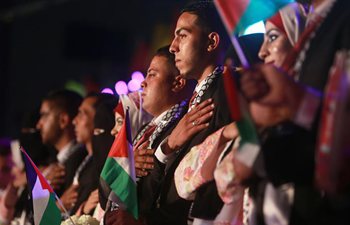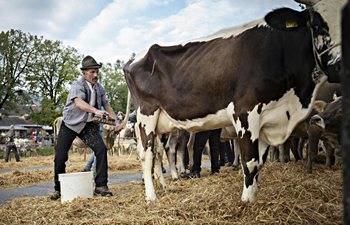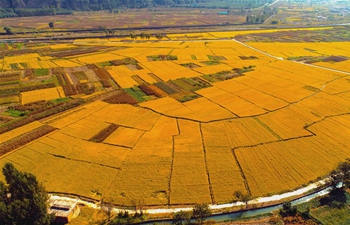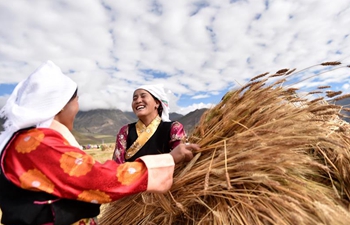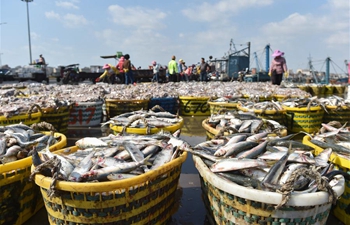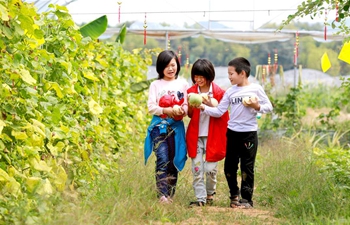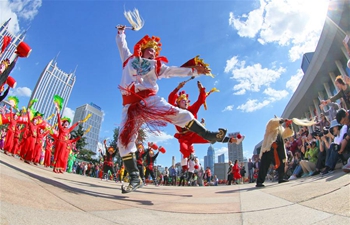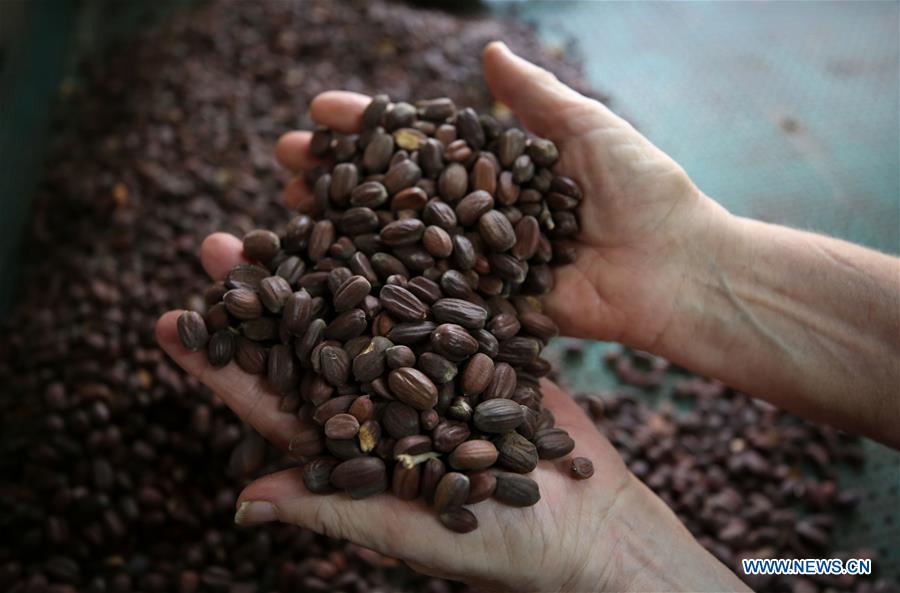
Palestinian biochemist professor Said Assaf, 80 years old, displays jojoba seeds at his farm in Arrabeh town near the West Bank City of Jenin, on Sept. 29, 2018. The jojoba trees, which are considered immortal and to have countless benefits, were first brought to Palestine in the late 1970's from Arizona in the United States by Said Assaf. He believes that jojoba makes a great plant for the region, under the current geographical and political conditions as Palestinians are allowed to make use of it in the occupied territory and the limited water resources. (Xinhua/Ayman Nobani)
by Fatima Aruri
JENIN, West Bank, Oct. 2 (Xinhua) -- While thousands of olive trees cover the sloppy hills of Arrabeh town near the northern West Bank city Jenin, hundreds of jojoba trees with slightly brighter leaves stand out amongst them.
The jojoba trees, which are considered immortal and to have countless benefits, were first brought to Palestine in the late 1970's from Arizona in the United States by Said Assaf, an 80-year-old biochemist professor.
The similarity between olive and jojoba trees makes them nearly twin trees, Assaf said, while explaining the process of planting jojoba by adapting the ancient methods of planting olive trees.
"I feel that I put a tree that is permanent to help olives and not compete with olives. It produces medicinal oil that our people can eat if they want, or use as medicinal oil," said Assaf.
The tree withstands drought and lack of rain during most of the year, and can be planted with olives, he added.
Like olives, jojoba trees start giving produce nearly a decade after being planted, and there is a local proverb saying that the special tree is planted not for its own farmer to eat of, but for his children and forthcoming generations.
Unlike anywhere else in the world, Assaf had started planting the jojoba as single or double stemmed trees, instead of multi-stem bushes.
Assaf grew fond of the jojoba after he returned to Palestine with a mission to fund specialized academic programs in biochemistry at Palestinian universities.
When he returned, he brought jojoba seeds to his small nursery in Jenin area. He succeeded in planting the first tree in 1981, in his own lot of land near his hometown Arrabeh.
He believes that jojoba makes a great plant for the region, under the current geographical and political conditions as Palestinians are allowed to make use of it in the occupied territory and the limited water resources.
Hasan Jum'a, a 51-year-old local farmer who has worked together with Assaf for the past 20 years in planting and harvesting jojoba, said that jojoba "is a desert plant and produces in the harshest conditions."
He explained that it is "planted with stems of a male and a female separated, where the female bears that fruit that is a nut. Over 48 percent of its weight is oil, which is very rich and has many uses."
Assaf and his wife, environmental scientist Karen Assaf, later established a scientific research center for his jojoba oil development and started planting in wider lots of lands.
A jojoba nut contains about 50 percent oil and only one percent water. Its oil can be used for cosmetic and medical purposes.
In addition to oil uses, the jojoba tree will protect the soil from erosion, and the land from confiscation by settlers, said Assaf.
The jojoba oil produced by Assaf couple is of internationally credited high quality. However, it remains an unpopular nut, and the main challenge is marketing it.
The Assafs' make around 1,500 kg of jojoba oil annually out of 12,000 trees they planted over the past three decades.





